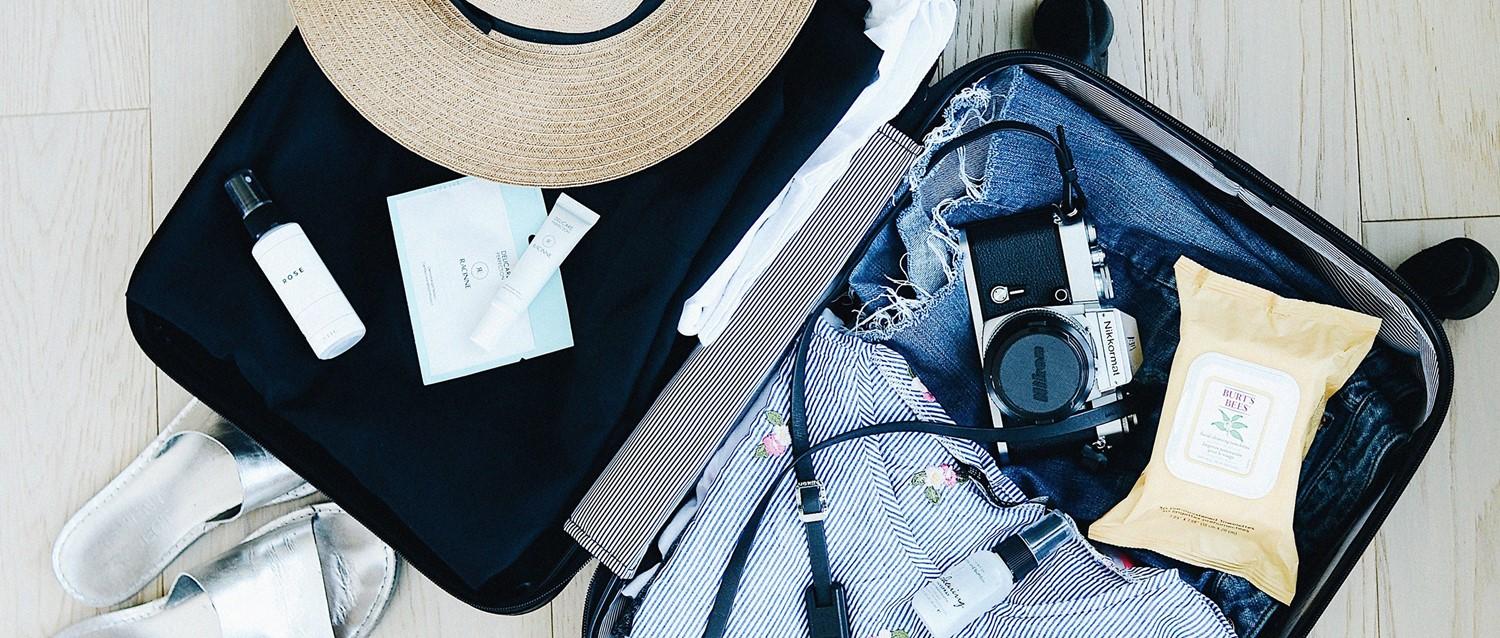
Que mettre dans sa valise pour son voyage de noces ?
Peer reviewed by Dr Hayley Willacy, FRCGP Authored by Abi MillarOriginally published 10 Apr 2018
- TéléchargerTélécharger
- Partager
Si vous venez de réserver votre "babymoon" (c'est-à-dire les dernières vacances que vous prenez avant l'arrivée de votre bébé), vous avez probablement de grandes attentes. Plus encore que les vacances ordinaires, la lune de miel pour bébés est soumise à une forte pression - après tout, il s'agit peut-être de votre dernier séjour sans enfant depuis un certain temps.
Dans cet article :
It stands to reason then, that you'll want to be super organised about what you bring along. There can be few situations more annoying than arriving at your destination, tired and frazzled after a long journey, only to realise you've forgotten something important.
It's advisable to jot down a list covering what you're likely to need. Since some of the essentials require a bit of forward planning (eg, insurance documents, letters from your doctor), you'll want to make a start on this well ahead of time.
Poursuivre la lecture ci-dessous
Insect repellant and sunscreen
For the most part, these items won't be too far removed from what you'd ordinarily bring on holiday. Think travel-sized toiletries, passport, camera and guidebook. (Not to mention as many beach novels as you can cram into your suitcase - early parenthood is notoriously not the best time to read.)
While these are all very standard travel essentials, some of them acquire an extra importance during pregnancy.
"We say to always make sure you take a safe insect repellant, because there are places with malarial mosquitoes and so on, even in Europe," says Elizabeth Duff, senior policy advisor at NCT. "And it's generally good advice anyway, but make sure your sunscreen is a high factor because skin can be more susceptible to burning during pregnancy."
Regarding the malarial mosquitoes, pregnant women are actually more susceptible than their travel partners to being bitten. In one study, pregnant women attracted twice as many mosquitoes as their non-pregnant counterparts, likely due to increased body heat and volatile compounds released from the skin surface.
The sunscreen recommendation is crucial too. During pregnancy, your skin becomes drier and more sensitive, meaning that as well as sunburn, you are at greater risk of melasma, a darkening of the skin. Ideally pick a mineral-based sunscreen that contains no oxybenzone - some studies have linked chemicals of this kind with low birth weight in female infants.
Choix des patients pour Alimentation et mode de vie pendant la grossesse

Grossesse
Les aliments et boissons à éviter en vacances si vous êtes enceinte
Si vous êtes une gourmande, voyager pendant votre grossesse peut être une bénédiction mitigée. D'une part, des vacances sont des vacances. D'autre part, vous ne pourrez pas passer votre temps à arpenter les ruelles et à goûter toutes les spécialités locales, comme vous auriez pu le faire avant de tomber enceinte.
par Abi Millar

Grossesse
Alimentation et mode de vie pendant la grossesse
La grossesse peut être une période très excitante pour la plupart des gens. Elle peut également susciter de l'anxiété quant à ce qu'il convient de faire (ou de ne pas faire) pour sa propre santé et celle de son bébé.
par le Dr Hayley Willacy, FRCGP
Sensible clothes
Loose, light clothing is also critically important. Since pregnant women are more prone to temperature fluctuations, it's best to layer up.
"Remember if you're going away for two or three weeks, you are going to be quite a bit bigger by the end of the trip if you're at that stage of pregnancy," points out Duff. "Clothing is probably harder if you’re going to a colder country, so it needs a bit of thinking through."
You should also bring comfortable, easy-to-remove shoes, as your feet may swell in hot weather or during travelling. And if you're going to be flying long haul, you may want to look into compression stockings to improve your circulation and decrease the risk of deep vein thrombosis.
Poursuivre la lecture ci-dessous
Snack selection
You might also want to bring a selection of snacks, both for the journey itself and for your actual stay. If there's a particular snack you like, it's worth keeping in mind that it may not be available at your destination. On a similar note, if you have particular nutritional requirements it's best to think about these ahead of time.
"You could bring dried fruit or something like that, because you might find you're going somewhere either fruit isn't easily available or could have been washed in unsafe water," says Duff. "Pregnant women can get a bit hungry at odd times, so if you've had jetlag you might wake up at times when a meal isn't on offer, feeling ravenous. Perhaps take some biscuits or crackers to safely assuage the hunger pangs."
Along with all your other essential documentation, you could include a list of foods to avoid abroad (this may differ from the foods you need to avoid at home) and keep it somewhere readily accessible.
Essential docs
However, the real priorities when it comes to documentation are you travel insurance and emergency contact details for your doctor. If you're past 28 weeks in your pregnancy, you should also include a letter from your doctor permitting travel, as your airline or ferry may require this.
"You should check your medical insurance obviously and make sure your stage of pregnancy is allowable within that," says Duff. "If you're travelling in Europe, there is the GHIC card. ."
On top of this, make sure to pack any prenatal vitamins and medication you regularly take, alongside other essential medications you might not be able to access. Chances are you won't need medical attention, but you want to feel safe and confident no matter what occurs.
As Duff points out: "The worst thing is not to be prepared if something goes wrong."
Historique de l'article
Les informations contenues dans cette page ont été évaluées par des cliniciens qualifiés.
10 avr. 2018 | Publié à l'origine
Auteur: :
Abi MillarExaminé par des pairs
Dr Hayley Willacy, FRCGP

Demandez, partagez, connectez-vous.
Parcourez les discussions, posez des questions et partagez vos expériences sur des centaines de sujets liés à la santé.

Vous ne vous sentez pas bien ?
Évaluez gratuitement vos symptômes en ligne